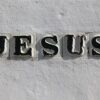More in News
-


News
It’s Time To Solve Problems Rather Than Protest, VP Shettima Says
On Friday, the Federal Government announced its involvement in the Grand Challenges Nigeria project, a global...
-


Family & Relationship
Couple Who Welcomed Quadruplets Get N19M, A Year Salary And More
As their cash inflow approaches N19M, Nigerians have not stopped contributing to the couple who welcomed...
-


News
Foreign Mercenaries Involved In Planned Protest – IGP
The Inspector General of Police, Kayode Egbetokun, claims intelligence available to the Force has revealed that...
-


News
Nigeria Shouldn’t Be Imitating Smaller Countries Like Kenya – House of Reps Deputy Speaker
The Deputy Speaker of the House of Representatives, Benjamin Kalu, has warned that violent protests in...
-


News
‘I Won’t Stay Silent On Gaza Suffering’ – Kamala Harris
US Vice President Kamala Harris says she would not be “silent” on Gaza’s suffering while simultaneously...














